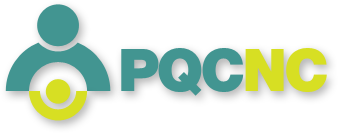13 Hospital Teams in Newborn Critical Care Centers across North Carolina have gathered baseline information and are entering the data into a secure web based data center. Each unit will send 3-6 participants to the first learning session the second week of January. During the workshop, teams will plan the activities expected to increase the numbers of mothers successfully pumping enough milk for their premature babies. According to Dr. Polly Sisk “Most health care providers have no difficulty talking with mothers about providing breast milk for their VLBW infants if they have already made the decision to breastfeed. However, many of us are uncomfortable talking with mothers who plan to formula feed about providing mothers’ milk even though we have ample evidence of ifs benefits for VLBW infants. Our hesitation stems from concern that this type of discussion may be perceived as coercive and a source of increased anxiety for mothers. Despite these common assumptions several studies (Jaeger 1997, Miracle 2004, and Sisk 2006) indicate that mothers want evidence-based information about their feeding choices, these discussions do not increase anxiety (Sisk 2006), and these discussions are associated with high rates of pumping initiation and mother’s milk feeding in VLBW infants. “
